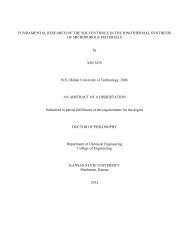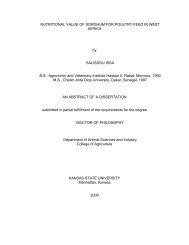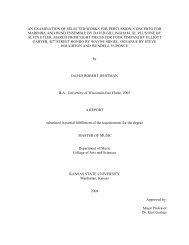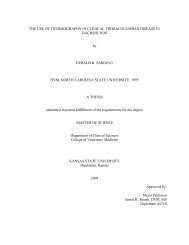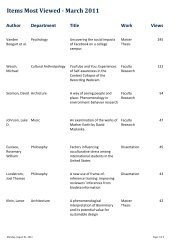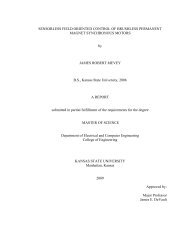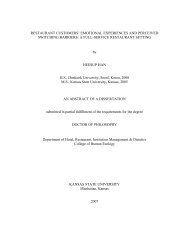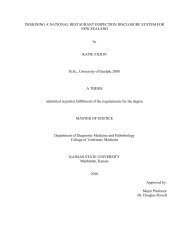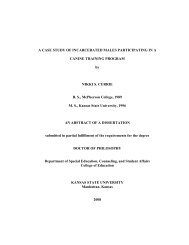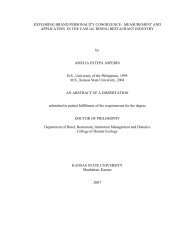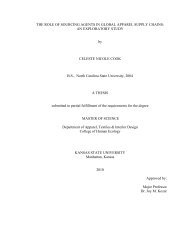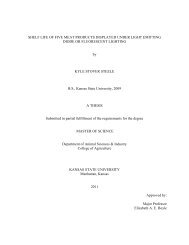SELFISH INTENTIONS - K-REx - Kansas State University
SELFISH INTENTIONS - K-REx - Kansas State University
SELFISH INTENTIONS - K-REx - Kansas State University
Create successful ePaper yourself
Turn your PDF publications into a flip-book with our unique Google optimized e-Paper software.
especially, because he claimed nine out of every ten cases were in default and one-half of these<br />
cases were petitioned with express or implicit collusion. But Moore also acknowledged the<br />
compelling power of women’s stories when he explained that most divorce cases involved a<br />
woman petitioner standing in court and telling the tale of her woes. No one objected to this type<br />
of testimony and without any other true evidence presented the judge must decide the divorce. If<br />
he decided that the case needed more legitimate evidence, he would face the likelihood that he<br />
would be deemed cruel by the community.<br />
In this letter to the editor, Judge Moore argued that the courts did not need to change the<br />
law, only adhere to previously set precedents for establishing evidence and testimony in each<br />
case. He contended the court should maintain a minimal waiting period between the events of<br />
the case and the actual court hearing. Secondly, he believed that no grounds for divorce should<br />
be established without corroborated testimony by a party close to the suit. Next, he declared that<br />
evidence submitted would only be examined if the person giving the evidence was deemed<br />
clearly competent under the rules of the law. The evidence presented to sustain the alleged<br />
ground for divorce must be clear and conclusive. Furthermore, perhaps because he had heard so<br />
many women speak of abuse, Judge Moore argued proof that a couple’s tempers were<br />
incompatible should not be regarded as evidence of extreme cruelty. Finally, Moore believed<br />
that any case in which collusion could be proved should be dismissed and the divorce denied.<br />
Moore argued judges around the state needed to implement these precedents for divorce cases,<br />
and by doing so <strong>Kansas</strong> district courts would see a decrease in cases on the docket.<br />
The presiding justice of the thirtieth <strong>Kansas</strong> District Court in Minneapolis, Judge R. F.<br />
Thompson, chose to attack the liberal nature of <strong>Kansas</strong> divorce statutes, flatly asserting that<br />
divorces should be more difficult to obtain in <strong>Kansas</strong>. In his letter to the editor of the Mail and<br />
48



